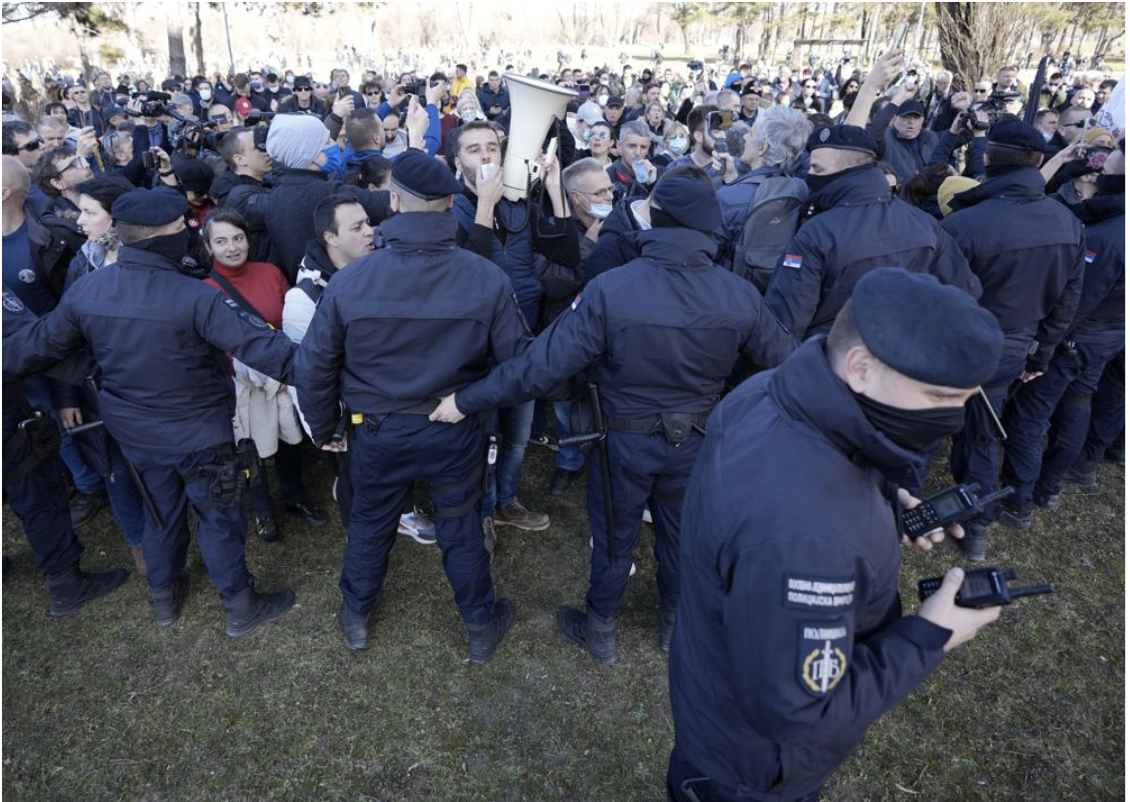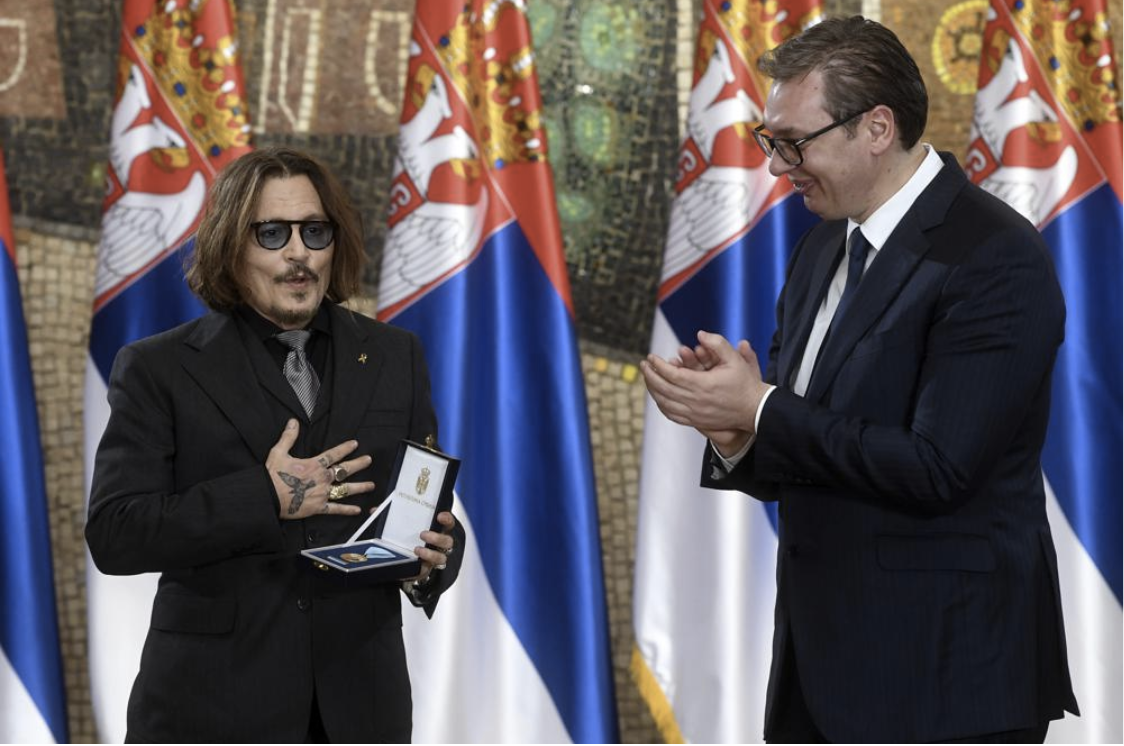Serbians Protest Against Lithium Mines near Statehood Day Ceremony
Police officers block off protesters from reaching the venue where Serbian President Aleksandar Vucic is holding a Statehood Day Event in Belgrade, Serbia, Tuesday, February 15, 2022. Photo: Associated Press/Darko Vojinovic
On Feb. 15, hundreds of Serbians protesting against lithium mining blocked several roads near a government building where Serbian President Aleksandar Vucic was handing out government awards. The ceremony that took place was to commemorate Serbia's Statehood Day, a national holiday celebrating the creation of the first Serbian state in 1804. Protesters demand a ban on lithium and an overall improvement of the environment in Serbia.
Police prevented demonstrators from reaching the venue where President Aleksandar Vucic was welcoming guests and giving awards. The event celebrated Statehood Day, as Vucic honored numerous institutions and individuals for their excellence in fields related– but not limited to– the economy, culture, and politics. Recipients even included celebrities such as American actor Johnny Depp. At the protest, drivers reportedly attempted to go through protesters blocking roads, along with several other incidents.
These protests are a continuation of a larger sit-in by environmental protesters in Belgrade, Serbia. Starting Feb. 11, protesters set up tents in front of Serbia's presidential building calling for a ban on lithium and borate mining in the Balkan nation. The environmental protests in Belgrade have been part of a larger environmental movement that calls for improvement regarding poor waste management and air and water pollution, in order for the nation to reach the environmental standards set for European Union accession.
As the world shifts from fossil fuels to cleaner energy sources, lithium's demand has been on the rise to power the increasing production of electric cars.
However, Serbian activists staunchly declare that lithium mining will do the opposite for the environment and will be more harmful. The protests and environmental movement were sparked by the government’s authorization in November of Anglo-Australian mining company Rio Tinto to buy land in western Serbia for lithium mining. Thousands of protesters blocked roads across the nation, demanding for the project to be scrapped and the company to be kicked out. Many residents worried that the project would contaminate the nation's soil and water.
At the end of Jan. 2022, the Serbian government gave in to the protesters' demands and revoked the license given to Rio Tinto, but protesters don't believe that the revocation will last. The protests in Belgrade stem from the worry that the Rio Tinto project will be "resurrected" after the upcoming snap elections. Protesters argue that the cancellation is temporary and only a ban would guarantee that no projects like the Rio Tinto would be authorized again.
Serbian President Aleksandar Vucic, right, awards the Gold Medal of Merit of the Republic of Serbia to actor Johnny Depp, during a Statehood Day award ceremony in Belgrade, Serbia, Tuesday, February 15, 2022. Photo: Serbian Presidential Press Service via Associated Press
These protests come at an unfortunate time for the Vucic's ruling Serbian Progressive Party (SNS). President Aleksandar Vucic is looking to extend his presidency and his party's decade-long rule on April 3, when parliamentary snap elections are scheduled to be held. Presidential elections are additionally scheduled on the same day. Although Vucic's popularity is high, his party has had to deal with these protests for months.
According to Sasa Djogovic of the Belgrade-based Institute for Market Research, the SNS "is losing popularity, and because of that it is forced to fulfill the demands by activists." Alongside the growing environmental concerns and protests, rising inflation threatens to stop Vucic and the Serbian Progressive Party's hopes from coming to fruition.


